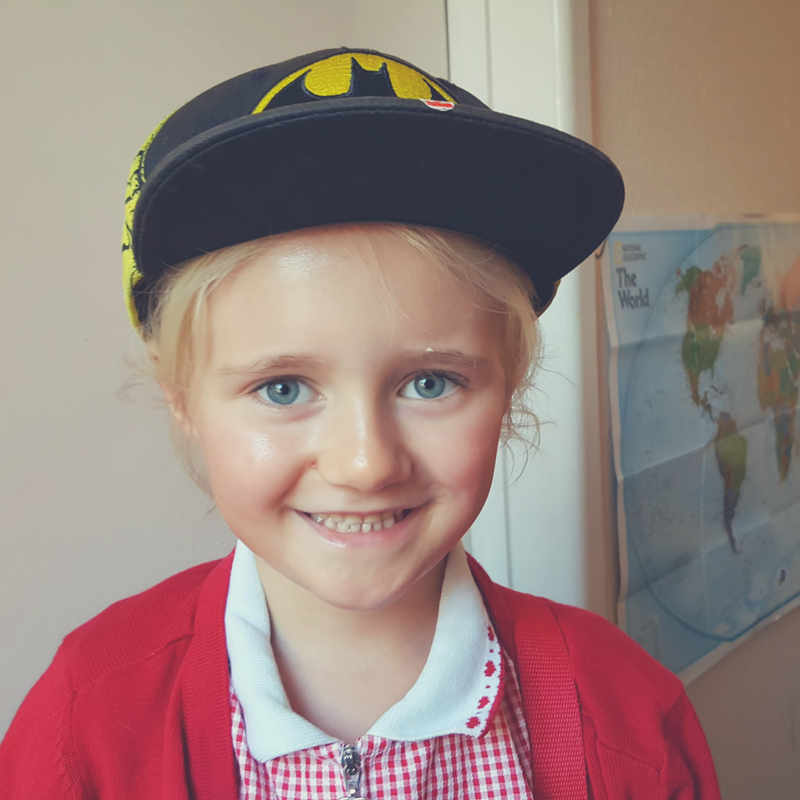If your child is anything like mine, finding out what they have been up to at school can be like getting blood from a stone! S is almost at the end of her Reception year at school and not once has she come out of her classroom desperate to tell me what she’s been up to! After three years at nursery where I had either a feedback sheet or a chat with a staff member every day to tell me what she’d been up to, I found the lack of information hard to take. I wanted to know that she had settled in well, that she was making friends, that she was eating her lunch!
How do you get your child to tell you about school?
Over the course of the year I have come up with certain tactics to help me get a little information out of S about her school day:
- Volunteer information. As we walk out of school each afternoon, we have the same little exchange. I say, Do you want to tell me about your day, or should I tell you about my day? S then says, You tell me about your day mummy and I launch into a very boring list of the things I did during my day. This takes the pressure off her and she’ll often come out with something spontaneously when I’ve finished talking.
- Ask specific questions. Remember that to a five year old, asking What did you do today is about the equivalent of me asking you, What did you do in 2014? It’s too big for a small brain to put into order and vocalise, and that’s why we’re often met with I don’t know! Instead, ask specific, open ended questions.
- Who did you play with today?
- Who did you sit next to at lunch time?
- Who made you laugh today?
- What was the best thing that happened today?
- What will your teacher tell me about you at parents evening?
- Did you help anyone today?
- Did your teacher do anything funny today?
- Who is your favourite person in your class?
- Who were you kind to today/who was kind to you?
- What did you draw today? (S does a lot of drawing!)
- Talk about different lessons or areas. I go through a list of all the different areas in S’s classroom: Did you go into the creative area today? Did you go into the writing area? Did you play outside? Did you go into the reading corner? This will at least achieve a yes or no response, and you can go from there: what did you do while you were there? As well as this, S enjoys going through the list of areas, and pointing out the ones I have missed out.
- Ask about specific children. S has a cousin in Year 2 at her school, so I often ask her if she saw him during the day. This will often lead to a story of what she did during play time, or an occasion (perhaps not today) when he came into her classroom or she saw him in his on her way to the library.

- Make it funny. If I’m really struggling, I go for the giggles. S’s school has set meals on each day of the week, so I might say Oh, today was roast snails day! Did you eat them all? That might at least let me find out what she did eat for lunch!
- Ask open ended questions – but not too open ended! If you ask closed questions all the time, expect closed answers. While we’ve already agreed that What did you do today is a bit too vague, you could try Tell me about your PE class today or Did you learn about XXX today? – S’s class theme for this term is castles, so I ask if she made any castles, drew any castles, dressed up as a knight and so on.
- Look in their school bag – if you’re allowed! I usually carry S’s bag home from school these days – or she hands it to me to carry as soon as she sees a wall she wants to jump off! A quick look into it will usually give me an idea of what to ask her – and failing that I can just pull something out of the bag and ask what it is! A study in 1999 showed that when 4 year old children brought home art work from school they talked about their recent activities in school significantly more. The things in your child’s school bag can be a great prompt for finding out everything from what they’ve learned to who keeps hogging the blue crayon!
- Pay attention to what’s going on in school. We get weekly newsletters which tell us about themes and activities going on in school, special events and all sorts. I use this to ask questions about specific things that have been going on in school. Even things like open days for prospective parents can provide a talking point as they will often have visited classrooms.
- Leave it til later. You don’t have to know everything the minute your child comes out of school! If S is not in the mood for chatting on the way home from school, I leave it and ask again over tea, or even on the way to school the next morning.
- Ask regularly, even if you never get an answer. If you ask the question and are constantly met with versions of I don’t know it can be disheartening and you might eventually give up. It’s important to keep the option open though, and to always ask the question – so that they always know that you want to hear about their day, and so that they can talk if they want to. This can be even more important as they get older and might have things they feel worried about bringing up.
- Use bedtime stalling to your advantage. Bedtime is usually the time when children will take any excuse to avoid going to sleep. Use that to your advantage and initiate a conversation about school then!
- Get to know the other children in their class. If you can name other kids – not necessarily their friends – it might jog their memory of things that happened. S seems to have a different best friend every day and there doesn’t seem to be anyone in her class she doesn’t like – so it’s a safe bet if I run through a list of names eventually I’ll hit upon someone she has played with or had an argument with!
- Spend some time in the classroom. Not everyone can do this one, but even just fifteen minutes at the end of the day to read a story to the class can make a big difference. I’ve found that this, as well as helping out on school trips etc, means other children will chat to me in the playground – and that I can ask specific questions based on what I’ve seen in the classroom – children who always sit together; children who never sit still; children who are always first to get their coat at the end of the day. The more you know, the more you can find out!
- Never interrupt! S often mixes up her words or stumbles over what she’s saying. Sometimes she’ll repeat a word (actually… actually…) until she figures out what else she wants to say. If I step in and try to guess or correct her in some way, she’ll clam up – especially if I correct a mistake. Better to let her carry on speaking, and make sure I pronounce the word properly in a sentence later on.
- Listen all the time. The thing about parenting is that you can’t pick and choose when to be interested. I want to know about S’s day on our walk home from school, but often she prefers to chat later on in the day – usually when I am washing up or doing something else when I’m otherwise occupied! I try to make a point of putting down what I’m doing and paying attention to what she’s saying whenever she wants to talk to me, so that she knows I want to hear what she has to say.
- Do “3 great things” at bedtime. Each night after her bedtime story, we list 3 great things that have happened during the day. Sometimes S needs prompting, but as she’s become more used to the idea she volunteers her own things and this can sometimes spark a conversation – especially if she’s not in the mood for bed just yet!
Additional resources for parents:
-
- Cerebral Palsy Family Network – useful resources for special needs families
- The hardest part of being a single parent
- Healthy meals for kids



1 Comment
Rachael · 28/06/2017 at 11:14
I love this & it’s given me some great ideas. It is so easy to give up asking especially when your not always the one doing pick up & by the time you see them at bedtime having come back from work all you want is time to yourself when what all you really need is time to be with & actually get to know your own kids!